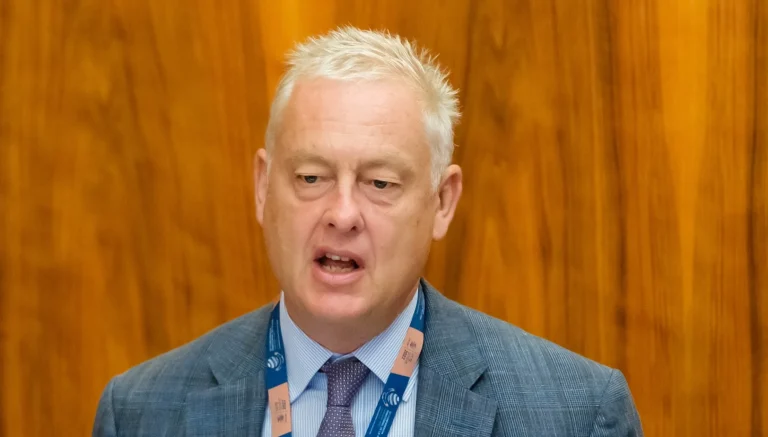The United Kingdom has called on Nigeria to fast-track its economic reforms by tackling market-distorting practices associated with state-owned enterprises, which are seen as hindering trade and investment.
Simon Manley, the UK’s Permanent Representative to the World Trade Organisation (WTO), made this appeal during Nigeria’s Trade Policy Review in Geneva on Monday.
While commending Nigeria for its progress in economic reforms, including the removal of fuel subsidies and adjustments to monetary policy, Manley stressed the need for deeper and faster changes to create a more business-friendly environment.
According to Manley, state-owned enterprises are a significant obstacle, with around 40 of them identified in a WTO Secretariat report as engaging in practices that stifle competition—particularly in the energy sector. These practices, he noted, are detrimental to private sector participation and trade.
“The harmful practices of state-owned enterprises need to be addressed,” Manley said. “These entities often distort markets and benefit from unfair competition, which undermines investment and trade potential.”
Manley also highlighted challenges faced by British businesses in Nigeria, including harmful subsidies, forced technology transfers, discriminatory enforcement of competition laws, and complex regulatory frameworks. These issues, he argued, contribute to a challenging business climate for foreign investors.
He concluded by urging Nigerian authorities to take decisive action against these practices to enhance trade and investment opportunities and boost the nation’s economic prosperity.
Manley also reaffirmed the importance of the UK-Nigeria Strategic Partnership, which aims to reduce trade barriers and explore new areas for mutual growth. He praised Nigeria’s growing trade diversification, particularly in manufacturing and agriculture, as well as its investments in infrastructure such as energy, housing, and transport, which are contributing to the country’s economic growth.

